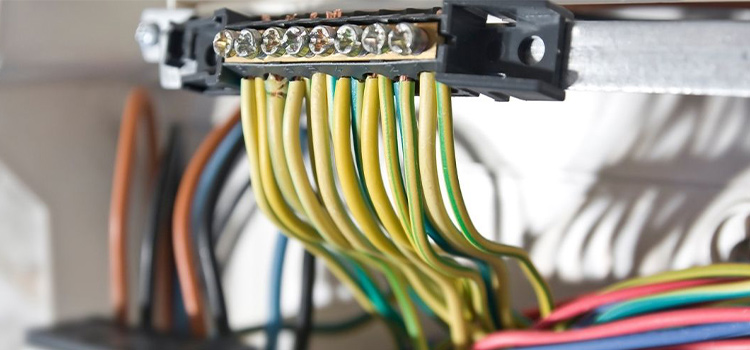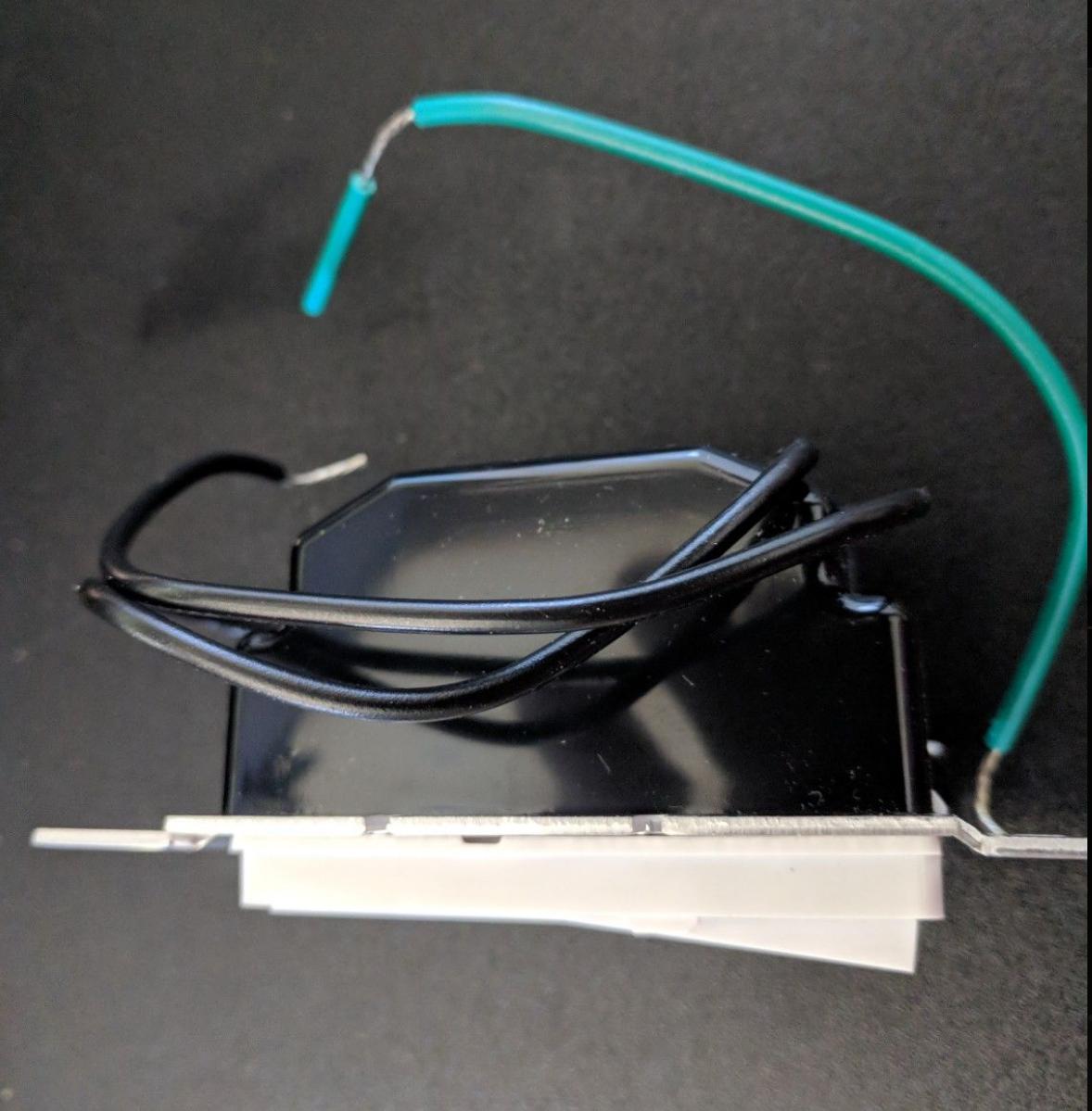If the ground wire is not connected, it can lead to power surges, equipment damage, and potentially dangerous electrical circuits. Without grounding, the flow of electricity becomes unpredictable and can cause harm to electrical appliances, people nearby, and even start fires.
Grounding is a crucial safety feature that ensures the stability and proper functioning of the electrical system in any structure. It is important to connect the ground wire to maintain a safe electrical environment.
Electric Circuits And Grounding
Could also experience power surges, equipment damage, and even increased risk of electrical fires. Ensuring that the ground wire is properly connected is crucial for the safety and functionality of electric circuits.
G is a crucial aspect of electrical systems as it ensures the safety of both the electrical devices and the people using them. When a ground wire is not connected, several problems can arise. Let’s explore the significance of electric circuits and grounding in more detail:
How Electric Circuits Work:
- Electric circuits are designed to allow the flow of electrical current from a power source (such as an outlet) to an electrical device.
- They consist of three essential components: A power source, a conductor (wires), and a load (electrical device).
- The power source provides the electrical energy, which flows through the conductors and powers the load.
Role Of The Ground Wire In Completing The Circuit:
- The ground wire serves as a safety measure by providing an alternate path for electrical current to flow safely into the ground.
- It acts as a protective barrier against electrical faults, such as short circuits or electrical leaks.
- When a fault occurs, the ground wire redirects the excess current away from the electrical device or the user, preventing potential hazards.
Explanation Of The Purpose Of Grounding In Electrical Systems:
- Grounding offers protection against electrical shock by providing a low-resistance path for current to flow into the ground.
- It helps prevent voltage fluctuations and reduces the risk of electrical fires caused by electrical faults.
- Grounding also helps stabilize electrical systems, minimizing the chances of equipment damage and extending their lifespan.
Remember, proper grounding is essential for the overall safety and functionality of electrical systems. Neglecting to connect the ground wire can lead to harmful consequences, including potential electrocution, device damage, and fire hazards. Therefore, it is crucial to always ensure that the ground wire is properly connected in electrical circuits.
Dangers Of Not Connecting The Ground Wire
When the ground wire is not connected properly, there are several dangers that can occur. Power surges can damage electrical appliances, cause shock to people nearby, or even start fires. Grounding is an essential safety feature that should not be overlooked in any electrical system.
When it comes to electrical circuits, the ground wire plays a vital role in ensuring the safety of individuals and protecting electrical appliances and equipment. Failing to connect the ground wire can lead to several dangers that should not be taken lightly.
Let’s take a closer look at the risks associated with not connecting the ground wire:
Risk of electrical shock to individuals:
- People nearby could be at risk of electrical shock if the ground wire is not connected properly.
- Without the ground wire, there is no path for excess electrical current to flow safely into the ground.
- This means that if a fault occurs, such as exposed wiring or a short circuit, the electrical current could pass through someone who touches the equipment or appliances, causing severe injury or even death.
Potential damage to electrical appliances and equipment:
- Not connecting the ground wire can potentially damage electrical appliances and equipment.
- In the absence of a ground wire, excess electrical current may be unable to find an appropriate path to dissipate, causing the current to flow through the appliance or equipment.
- This can result in overheating, short circuits, or even total equipment failure, requiring expensive repairs or replacements.
Increased risk of electrical fires:
- One of the most significant dangers of not connecting the ground wire is the increased risk of electrical fires.
- When excess electrical current cannot find a safe path through the ground wire, it may generate heat and sparks within the electrical circuit.
- Over time, this can lead to overheating and the ignition of surrounding materials, potentially causing a devastating electrical fire.
Not connecting the ground wire poses serious risks to both individuals and electrical systems. Electrical shock, damage to appliances and equipment, and the heightened risk of electrical fires are all potential outcomes of neglecting to connect the ground wire. To ensure the safety of yourself, others, and your electrical devices, always remember to properly connect the ground wire in your circuits.
Testing For Grounding Issues
Household electrical system may also be at risk of power surges, equipment damage, and even fire. It is crucial to ensure that the ground wire is properly connected to prevent these potential hazards.
When it comes to electrical systems, proper grounding is essential for safety and functionality. If the ground wire is not connected, it can lead to various issues. To ensure that your electrical system is properly grounded, you need to conduct thorough testing for grounding issues.
Here are the steps you should follow:
- How to test for continuity and proper grounding:
- Start by turning off the circuit breaker that supplies power to the circuit you want to test.
- Use a voltage detector to ensure that there is no power running through the circuit.
- Once you have confirmed that the circuit is not live, use a continuity tester to check for continuity between the ground wire and the ground connection point.
- If there is no continuity, it indicates that the ground wire is not properly connected.
- Importance of using voltage detectors and continuity testers:
- Voltage detectors are crucial in ensuring your safety when working with electrical systems. They help identify whether a circuit is live or not, preventing accidental electric shocks.
- Continuity testers, on the other hand, are designed to check the integrity of electrical connections and circuits. They can determine if there is a break in the flow of electricity, helping you identify grounding issues.
- Step-by-step guide for fixing an open ground issue:
- Start by turning off the circuit breaker that supplies power to the circuit with the open ground issue.
- Use a continuity tester to identify the disconnected ground wire. It should show no continuity between the ground wire and the ground connection point.
- Once you have located the disconnected ground wire, reconnect it to the ground connection point. Ensure that it is securely attached.
- Use a voltage detector to confirm that the circuit is no longer live.
- Test the continuity between the ground wire and the ground connection point with a continuity tester. It should now show continuity.
- Turn the circuit breaker back on and test the circuit to ensure that it is functioning properly.
- Finally, inform other individuals in the vicinity that the open ground issue has been resolved and that the electrical system is safe to use.
By following these steps and conducting proper testing for grounding issues, you can ensure the safety and functionality of your electrical system. Remember, it is always best to consult a qualified electrician if you are unsure about any electrical repairs or installations.

Credit: www.circuitsgallery.com
Frequently Asked Questions On What Happens If Ground Wire Is Not Connected
What Happen If You Don’T Connect The Ground?
Not connecting the ground wire can result in power surges, equipment damage, potential electrical shock, and the risk of fires. Grounding is essential for safety in an electrical system.
What Happens If Ground Wire Disconnects?
If the ground wire disconnects, electrical circuits can become dangerous or destructive. Power surges or equipment damage could occur, damaging appliances, potentially causing electric shocks or fires. Grounding is essential for the safety of any electrical system.
Is It Safe To Wire Without A Ground Wire?
If the ground wire is not connected, there are risks of electrical surges, equipment damage, electric shocks, and fires. It is not safe to wire without a ground wire.
Q: Why Is It Important To Connect The Ground Wire?
A: Without grounding, power surges or equipment damage could render electrical circuits dangerous or destructive. Grounding is an important safety feature for any structure’s electrical system.
Q: What Happens If The Ground Wire Disconnects?
A: If there is no ground connection, no current flows in the building’s electrical circuit, leading to power loss and potentially dangerous situations. Electric system ground connections are crucial for safety.
Conclusion
Without a properly connected ground wire, there can be serious consequences. Power surges or equipment damage could make electrical circuits dangerous or destructive. This can lead to damage to attached electrical appliances, the risk of electric shock to nearby individuals, or even the start of fires.
Grounding is a crucial safety feature for any electrical system in a structure. In the event that the ground wire disconnects, no current will flow through the building’s electrical circuit. A weak connection between the electrical system and the earth could result in power loss, as not enough electrons can flow to the earth.
In the absence of a ground wire, risks of overloads and surges can cause damage and pose serious hazards. It is important to ensure that all electrical circuits are properly grounded to maintain safety and prevent potential harm.

